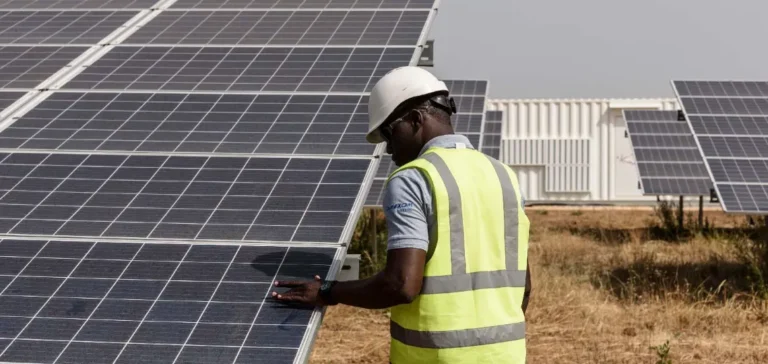The latest edition of the report titled Tracking SDG 7: The Energy Progress Report 2025 shows an improvement in global electricity access. Currently, nearly 92% of the global population benefits from basic access to electricity. However, around 666 million people remain without electricity, mostly in rural and vulnerable areas.
Persistent regional disparities
Despite significant advances made in regions such as Central and Southern Asia, where the number of people without electricity access declined from 414 million in 2010 to 27 million in 2023, sub-Saharan Africa continues to lag behind. Indeed, 85% of the global population lacking electricity live in this region, where installed renewable energy capacity reaches only 40 watts per capita, compared to more than 1,100 watts in developed economies.
The issue of access to clean cooking also remains worrying, with minimal progress between 2022 and 2023. More than two billion people still use polluting fuels such as firewood and charcoal. The annual increase of people without access to clean cooking technologies reaches 14 million in sub-Saharan Africa.
International financing rising
Regarding financing, international financial flows to developing countries for clean energy rose for the third consecutive year, reaching $21.6bn in 2023. However, these funds remain unevenly distributed, with only two sub-Saharan African countries among the top five global recipients.
International financing relies primarily on debt instruments (83% of the total), while grants represent only 9.8%. In response, the report recommends reforms in multilateral and bilateral lending, increased concessional financing, and enhanced mobilisation of public and private capital.
Limited progress on energy efficiency
On the global energy efficiency front, progress remains slow. In 2022, global primary energy intensity decreased by 2.1%, an improvement compared to 0.5% in 2021, but insufficient to meet the Sustainable Development Goal (SDG) 7.3 target, which requires an annual average improvement of 4%.
The share of renewable energies in total final energy consumption reached 17.9% in 2022, with an installed capacity per capita of 478 watts in 2023, an increase of nearly 13% since 2022. Nevertheless, this remains insufficient to achieve international climate and sustainable development goals.
Calls for strengthened action
Ahead of the official report presentation scheduled for 16 July 2025 during the High-Level Political Forum in New York, several international leaders highlight the urgency to accelerate investments. Fatih Birol, Executive Director of the International Energy Agency (IEA), notes that the expansion of electricity access and clean cooking remains too slow, negatively impacting public health and development.






















